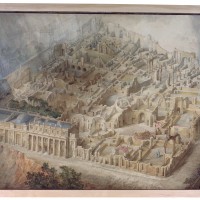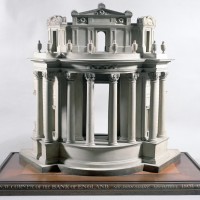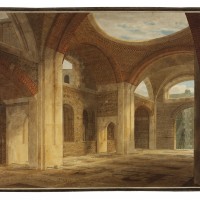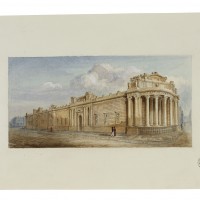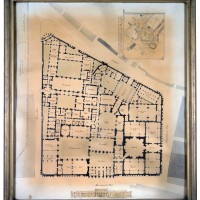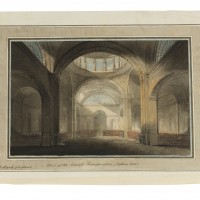Sir John Soane
Sir John Soane (1753 –1837) was an English architect who specialized in the Neo-Classical style. The son of a bricklayer, he rose to the top of his profession, becoming professor of architecture at the Royal Academy and an official architect to the Office of Works. He received a knighthood in 1831.
On 16 October 1788 Soane was appointed architect and surveyor to the Bank of England, where his work would continue for the next 45 years. During his tenure, Soane rebuilt much of the bank, and vastly extended it.
Sir John Soane’s Bank of England
Sir John’s Soane’s contributions to the Bank of England were destroyed in the 1920s to make way for renovations, in what is considered by some architectural historians to be one of modern architectural history’s greatest losses.
Today, the memory of Soane’s Bank of England is revered by architects worldwide for its spectacular use of natural light and mesmerizing effects of scale.
To learn more about Sir John Soane and his Bank for England, please visit Sir John Soane’s Museum:
Online treasures
- Casinos Not On Gamstop
- Casinos Sin Licencia Española
- Non Gamstop Casino
- Casino Online Migliori
- Non Gamstop Casinos UK
- Meilleur Site Casino Live
- Best Online Casino UK
- Non Gamstop Casinos UK
- Sites Not On Gamstop
- Casino Not On Gamstop
- Instant Withdrawal Online Casino
- Non Gamstop Casinos
- Non Gamstop Casino Sites UK
- Casino Not On Gamstop
- Casino Online Non Aams
- Non Gamstop Casinos
- List Of UK Casino Sites
- Casino Sites Not On Gamstop
- Casino Sites Not On Gamstop
- Casinos Not On Gamstop
- UK Casino Not On Gamstop
- Best Non Gamstop Casinos
- Meilleur Casino En Ligne Français
- UK Online Casinos Not On Gamstop
- Betting Sites Not On Gamstop Uk
- Casino Online Italia
- Casino En Ligne Meilleur Site
- Casino En Ligne Belgique Liste
- 해외 카지노 사이트 추천
- Meilleur Casino En Ligne 2026
- Nouveau Casino En Ligne Fiable
- Crypto Scommesse
- Migliori Casino Online Nuovi
- Casino En Ligne
- Nuovi Casino Non Aams
- Meilleur Casino En Ligne
- Nouveau Casino En Ligne France
- Meilleur Casino En Ligne
- Meilleur Casino En Ligne


